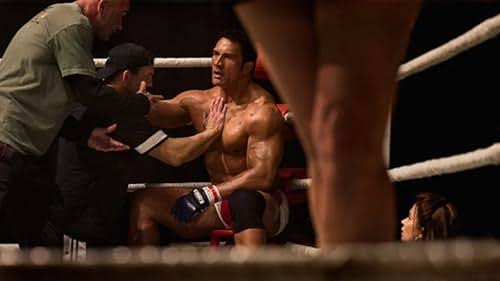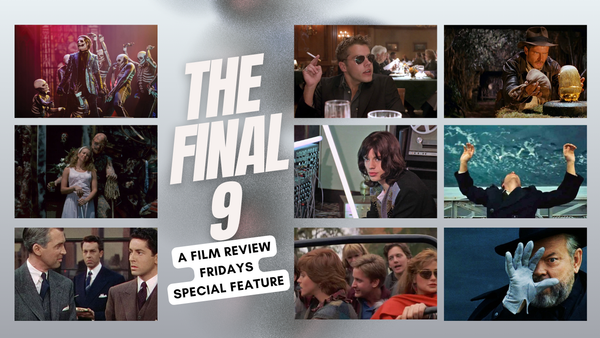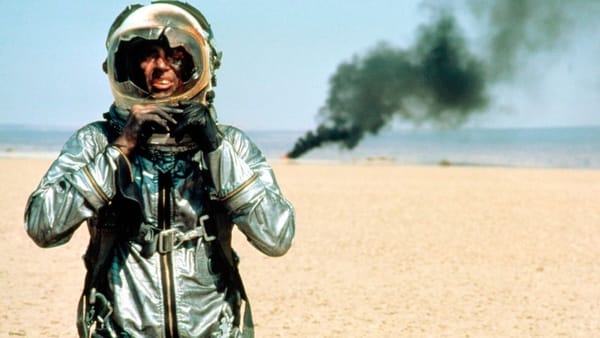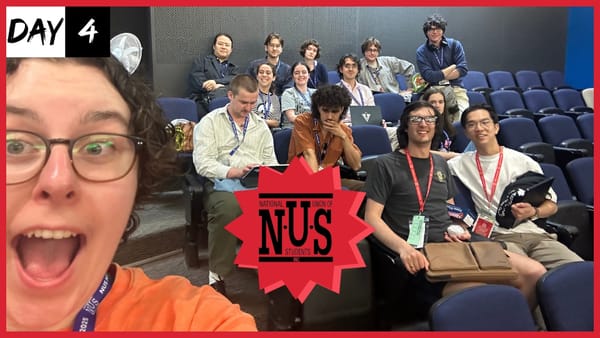The Smashing Machine - Film Review Friday

I haven't seen many Dwayne Johnson films, mostly because he feels like a two-note actor to me. He's either an unstoppable, action hero or a suave but slightly naive comedy character. The one film that really turned me off his filmography was ‘Black Adam', not because of the content, but because of what was happening behind-the-scenes: Johnson's relentless pursuit to be the most powerful character in the DCEU. I think one of the most disingenuous things an actor can do is only accepting roles that end in their victory – Steven Seagal is notorious for this, and Vin Diesel is rumoured to have a similar clause in his contracts. I see it as an ego trip that goes against the rules of basic narrative. Having a character be completely invincible is boring as batshit. If there's no risk, no pain, no catastrophic failure, then there's no reason to watch at all. That's what makes ‘The Smashing Machine’ such a breath of fresh air. After years of playing practically immortal action heroes, Johnson has changed his cinematic ways for the better, and it's a wild, emotional ride.
‘The Smashing Machine' follows the career of UFC fighter Mark Kerr and his struggles with drug and alcohol addiction, along with his toxic relationship with his girlfriend, Dawn. The film is shot mostly documentary-style, with a shaky cam and plenty of zooms, perhaps to feel more in line with the documentary of the same name (upon which the film is based). But perhaps the cinematography reveals something a bit more interesting: one of the characters hiding in the shadows, maybe gathering evidence of his drug use.
The film makes a bold and interesting choice to begin with Kerr’s first fight but also mid-drug use. An introduction like that raises an interesting question: is a fighter a fighter at all, if he's used performance enhancing drugs from the start? Is the film less about a comeback, and more about his first actual steps as a fighter?
As the film progresses, several organisations implement increasingly stricter rules, turning the UFC of the late 90s to the UFC of today. Kerr loses his best moves to rule changes and thereby loses a part of himself. Because of this, his integrity as a fighter is placed into question. Can he be accepted as a fair fighter today? If not, can he adapt and change his own rules?
Dwayne Johnson portrays Mark Kerr as a “gentle giant” figure struggling with his addiction not only to painkillers, but with victory as well. Despite his flaws, his persistence to be the best fighter and stay clean make him an incredibly sympathetic figure. Because of this, more often than not, I felt myself rooting for him. It's the “gentle giant” performance that made the film feel so personal to me. I felt notes of my own father, who was also a fighter, in Johnson's performance – even the damn hairstyle Johnson sports, and eventually shaves off, is identical to my father's. I found myself really considering whether I was watching Kerr or the man who brought me up and even trained me in martial arts. It was like a “what could have been”, as if Benny Safdie is an alternate version of myself and caught me in the audience. Don't misunderstand, many of the troubles Kerr faces in the film weren't faced by my father - there are plenty of reasons I look up to him and not Kerr.
Emily Blunt plays Dawn and teeter-totters between rational and irrational. She takes care of Kerr, but also desires and needs more connection in their relationship. She often finds herself on the sidelines, more of a team player than a girlfriend. It's clear to see she's a victim of an almost loveless relationship, but when the arguments start, another more powerful, strategic side to her is exposed. A side that will not go down without a fight.
Praise has to go to the film's dialogue, especially in scenes between Johnson and Blunt. Never have I seen a more accurate argument scene between spouses. Both parties acting innocent but slowly edging into the offensive position, never admitting fault and always villanising the other. Watching those scenes felt as if Benny Safdie copied actual arguments word-for-word and changed the names.
‘The Smashing Machine' does for Dwayne Johnson what ‘Pulp Fiction’ did for John Travolta, what ‘The Wrestler’ did for Mickey Rourke and what ‘Iron Man’ did for Robert Downey Jr. It breathes new life into his career, inspires a future filled with exciting new projects that aren't formulaic action films. This film shows Johnson has the potential to be a powerful dramatic actor. I hope he considers that.




